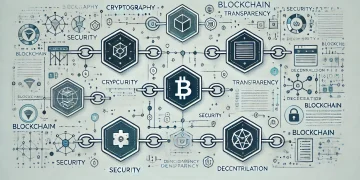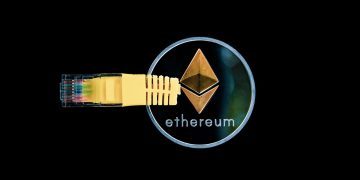In today’s globalized economy, supply chains have become increasingly complex, spanning multiple countries, involving numerous stakeholders, and generating vast amounts of data. As businesses strive for greater efficiency, transparency, and security in their operations, a revolutionary technology has emerged as a game-changer: blockchain. This distributed ledger technology, originally developed as the foundation for cryptocurrencies like Bitcoin, is now finding transformative applications in supply chain management.
This article explores how blockchain is reshaping the landscape of supply chain management, offering unprecedented levels of transparency, traceability, and efficiency. We’ll delve into the challenges faced by traditional supply chains, the unique features of blockchain that address these issues, and real-world examples of companies leveraging this technology to gain a competitive edge.
Understanding the Challenges in Traditional Supply Chains
Before we dive into the blockchain revolution, it’s crucial to understand the pain points in traditional supply chain management. These challenges have persisted for years, hindering efficiency and causing significant economic losses:
Lack of Transparency
One of the most significant issues in conventional supply chains is the lack of end-to-end visibility. As products move from manufacturers to distributors, retailers, and eventually to consumers, tracking their journey becomes increasingly difficult. This opacity can lead to inefficiencies, delays, and increased costs.
Data Silos and Information Asymmetry
In many supply chains, each participant maintains their own database, leading to information silos. This fragmentation makes it challenging to share data efficiently and can result in discrepancies between different stakeholders’ records. The resulting information asymmetry can lead to mistrust and disputes.
Inefficient Paper-Based Processes
Despite technological advancements, many supply chain processes still rely heavily on paper documentation. From bills of lading to customs forms, these paper-based systems are prone to errors, delays, and fraud.
Difficulty in Tracing Product Origin and Authenticity
For industries ranging from food to pharmaceuticals, verifying the origin and authenticity of products is crucial. However, traditional supply chains often lack the means to provide reliable, tamper-proof records of a product’s journey from source to consumer.
Slow and Costly Reconciliation Processes
Reconciling transactions, tracking payments, and managing disputes can be time-consuming and expensive in traditional supply chains, often requiring manual intervention and intermediaries.
Enter Blockchain: A Paradigm Shift in Supply Chain Management
Blockchain technology offers a solution to many of these longstanding challenges. At its core, blockchain is a distributed, decentralized ledger that records transactions across a network of computers. Each transaction is stored in a “block,” which is then linked to previous blocks, forming a chain of information that is transparent, immutable, and secure.
Key Features of Blockchain for Supply Chain Management
- Decentralization: Unlike traditional centralized databases, blockchain distributes data across a network of participants, eliminating single points of failure and reducing the risk of data manipulation.
- Transparency: All participants in the blockchain network have access to the same information, creating a single source of truth that enhances trust and collaboration.
- Immutability: Once data is recorded on the blockchain, it becomes extremely difficult to alter or delete, ensuring the integrity of supply chain records.
- Smart Contracts: These self-executing contracts with the terms of the agreement directly written into code can automate many supply chain processes, reducing the need for intermediaries and minimizing disputes.
- Real-time Tracking: Blockchain enables real-time tracking of assets and transactions, providing up-to-the-minute visibility into the supply chain.
Now, let’s explore how these features are revolutionizing various aspects of supply chain management.
Enhancing Traceability and Provenance
One of the most significant impacts of blockchain on supply chain management is in the area of traceability and provenance. By creating an immutable record of each step in a product’s journey, blockchain provides unprecedented visibility into the supply chain.
Food Industry: Ensuring Safety and Authenticity
In the food industry, traceability is crucial for ensuring food safety and authenticity. Walmart, in partnership with IBM, has implemented a blockchain-based system to track the origin of food products. In the event of a contamination outbreak, Walmart can now trace a product back to its source in seconds, rather than days or weeks. This rapid traceability not only enhances food safety but also reduces the economic impact of recalls.
Similarly, BeefChain, a Wyoming-based company, uses blockchain to certify the origin and quality of beef products. Ranchers can tag their cattle with RFID chips, and every step of the production process is recorded on the blockchain, allowing consumers to verify the authenticity and journey of their beef from farm to table.
Luxury Goods: Combating Counterfeits
In the luxury goods sector, counterfeiting is a significant problem that costs brands billions of dollars annually. LVMH, the parent company of Louis Vuitton and other luxury brands, has developed AURA, a blockchain-based platform to authenticate luxury products. Each product is assigned a unique digital identifier, allowing customers to trace its entire lifecycle and verify its authenticity.
Pharmaceuticals: Ensuring Drug Safety
The pharmaceutical industry faces challenges with counterfeit drugs and complex supply chains. MediLedger, a blockchain network for the pharmaceutical industry, aims to track and trace prescription drugs as they move through the supply chain. This not only helps combat counterfeit drugs but also ensures compliance with regulations like the Drug Supply Chain Security Act (DSCSA) in the United States.
Improving Transparency and Trust
Blockchain’s inherent transparency is transforming how stakeholders interact within the supply chain, fostering trust and collaboration.
Supplier Management and Ethical Sourcing
Blockchain can provide verifiable records of supplier certifications, audits, and compliance with ethical and environmental standards. For instance, De Beers, the diamond company, has developed Tracr, a blockchain platform that tracks diamonds from mine to retail, ensuring they are ethically sourced and not “conflict diamonds.”
Consumer Trust and Brand Loyalty
By providing consumers with access to detailed product information and supply chain data, companies can build trust and loyalty. For example, Provenance, a UK-based company, uses blockchain to help brands share the journey and impact of their products with consumers, promoting transparency and supporting ethical consumption.
Enhancing Efficiency and Reducing Costs
Blockchain’s ability to streamline processes and automate transactions is driving significant efficiencies in supply chain management.
Streamlining Documentation and Reducing Paperwork
The shipping industry, known for its paper-heavy processes, is embracing blockchain to digitize and streamline documentation. Maersk and IBM have developed TradeLens, a blockchain-based platform that digitizes the supply chain process. The platform reduces the time it takes to process shipping documents, saving billions of dollars in the shipping industry annually.
Automating Payments and Contracts
Smart contracts on blockchain platforms can automate payments based on predefined conditions, reducing delays and disputes. For instance, a smart contract could automatically release payment to a supplier when a shipment is confirmed as received in good condition.
Inventory Management and Demand Forecasting
Blockchain can provide real-time visibility into inventory levels across the supply chain, enabling more accurate demand forecasting and reducing the bullwhip effect. This can lead to optimized inventory levels, reduced carrying costs, and improved cash flow.
Enhancing Security and Reducing Fraud
The immutable and transparent nature of blockchain makes it an excellent tool for enhancing security and reducing fraud in supply chains.
Preventing Counterfeit Products
As mentioned earlier in the context of luxury goods and pharmaceuticals, blockchain’s ability to provide a tamper-proof record of a product’s journey makes it much more difficult for counterfeit goods to enter the supply chain.
Secure Data Sharing
Blockchain allows for secure sharing of sensitive data between supply chain partners without compromising confidentiality. Partners can selectively share relevant data while keeping other information private, fostering collaboration while protecting competitive advantage.
Real-World Implementations and Case Studies
While we’ve mentioned several examples throughout this article, let’s look at a few more detailed case studies of blockchain implementation in supply chain management:
Case Study 1: IBM Food Trust
IBM Food Trust is a collaborative network of growers, processors, wholesalers, distributors, manufacturers, and retailers using blockchain technology to enhance visibility and accountability in the food supply chain. The network allows members to trace the origin and journey of food products in seconds, improving food safety, reducing waste, and enhancing efficiency.
Key achievements:
- Reduced the time to trace the origin of food products from 7 days to 2.2 seconds.
- Improved freshness of products by 30% by reducing supply chain inefficiencies.
- Onboarded over 200 organizations across the global food ecosystem.
Case Study 2: EverLedger in the Diamond Industry
EverLedger uses blockchain to track and protect valuable assets throughout their lifecycle, with a particular focus on the diamond industry. The platform creates a digital thumbprint for each diamond, recording its characteristics, origins, and ownership history on the blockchain.
Key achievements:
- Tracked over 2 million diamonds from mine to retail.
- Reduced fraud and increased consumer confidence in the diamond industry.
- Partnered with major industry players, including Gübelin Gem Lab and the Diamond Time-Lapse Protocol.
Case Study 3: CargoX in Shipping and Logistics
CargoX has developed a blockchain-based platform for transferring bills of lading and other trade documents. The platform replaces the traditional paper-based process with a digital, secure, and instant transfer of documents.
Key achievements:
- Reduced the time to transfer trade documents from 5-10 days to 20 seconds.
- Saved up to $15 per document in courier costs.
- Processed over 100,000 Bills of Lading, with a total value of goods exceeding $1 billion.
Challenges and Considerations
While blockchain holds immense promise for revolutionizing supply chain management, it’s important to acknowledge the challenges and considerations associated with its implementation:
Scalability
As more transactions are recorded on the blockchain, ensuring the network can handle increased volume without compromising speed or efficiency is crucial.
Interoperability
For blockchain to reach its full potential in supply chain management, different blockchain networks need to be able to communicate and share data seamlessly.
Regulatory Compliance
As blockchain adoption grows, navigating the evolving regulatory landscape across different jurisdictions will be crucial for widespread implementation.
Initial Costs and ROI
Implementing blockchain solutions can require significant upfront investment. Organizations need to carefully evaluate the potential return on investment and have a clear implementation strategy.
Data Privacy and Security
While blockchain enhances data security in many ways, ensuring compliance with data privacy regulations like GDPR and protecting sensitive business information remain important considerations.
The Future of Blockchain in Supply Chain Management
As blockchain technology continues to mature and evolve, we can expect to see even more innovative applications in supply chain management:
Integration with IoT and AI
The combination of blockchain with Internet of Things (IoT) devices and Artificial Intelligence (AI) holds tremendous potential. IoT devices can provide real-time data inputs to the blockchain, while AI can analyze this data to optimize supply chain operations and predict potential issues.
Expansion into New Industries
While industries like food, luxury goods, and pharmaceuticals have been early adopters of blockchain in their supply chains, we can expect to see increased adoption across a wider range of sectors, from automotive to aerospace.
Development of Industry Standards
As blockchain adoption grows, we’re likely to see the development of industry-wide standards and best practices for blockchain implementation in supply chain management.
Increased Focus on Sustainability
Blockchain’s ability to provide transparent and verifiable data on the environmental impact of supply chain operations is likely to play a crucial role in sustainability efforts and ESG (Environmental, Social, and Governance) reporting.
Conclusion
Blockchain technology is undeniably revolutionizing supply chain management, offering solutions to longstanding challenges in transparency, traceability, efficiency, and security. From ensuring the authenticity of luxury goods to enhancing food safety, from streamlining shipping documentation to combating counterfeit pharmaceuticals, blockchain is transforming how goods move from producers to consumers.
As with any transformative technology, the journey to widespread adoption will have its challenges. However, the potential benefits of blockchain in supply chain management are too significant to ignore. Organizations that embrace this technology and successfully navigate its implementation are likely to gain a significant competitive advantage in the increasingly complex and globalized world of supply chain management.
The blockchain revolution in supply chain management is not just about technology—it’s about creating more transparent, efficient, and trustworthy systems that benefit businesses and consumers alike. As we look to the future, it’s clear that blockchain will play a pivotal role in shaping the supply chains of tomorrow, driving innovation, sustainability, and growth across industries.













































